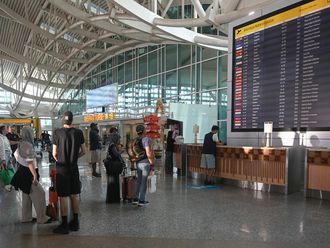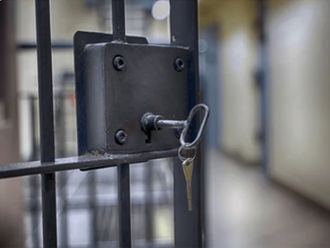Kabul: A huge blast from a Taliban suicide truck bomb attack on a joint Nato-Afghan army base in eastern Afghanistan on Wednesday injured several international and Afghan troops, officials said.
Nato’s International Security Assistance Force (ISAF) confirmed that some of its troops were wounded along with Afghan soldiers, but would not disclose how many.
Reports by Afghan officials of the number of Afghan soldiers wounded in the attack — claimed by Taliban insurgents — varied from 11 to 45, with the lower figure confirmed by the defence ministry. There were no reports of any deaths.
The attack came as Afghan forces take on an increasing role in the war against the Taliban with Nato drawing down its forces ahead of a pull-out of all combat troops at the end of 2014.
So far this year the Afghan army and police have suffered an average of 535 casualties — killed and wounded — each month, ISAF says.
In contrast, a total of 358 ISAF troops have been killed this year, according to the icasualties.com website. ISAF does not usually release the number of its troops wounded in operations.
“This morning a joint ISAF-ANSF [Afghan National Security Forces] combat outpost in Zurmat district in Paktiya province was attacked by insurgents using a vehicle-borne improvised explosive device and indirect fire,” an ISAF spokesman said.
The Taliban said their fighters had infiltrated the base after the suicide attack. ISAF refused to confirm this, saying only that the base was now secure.
“Our mujahideen armed with rockets, machine guns, hand grenades and suicide vests successfully infiltrated an American forces base in Zurmat district following a suicide car bomb attack,” Taliban spokesman Zabiullah Mujahid said.
The ability of Afghan forces to take full responsibility for the fight against the Taliban is a key plank of Nato’s exit strategy from the 11-year war and commanders regularly talk up the growing effectiveness of local troops.
But many observers point to reports of indiscipline and lack of motivation among the Afghan forces as warning signs of problems ahead after they lose the military and logistical support of the huge Nato operation.
“The Afghan army and police are overwhelmed and underprepared for the transition,” said Candace Rondeaux in a recent report for the International Crisis Group.
But Western nations are keen to get their troops home from a long and costly war and have repeatedly stressed that the 2014 deadline for withdrawal would be met whatever the conditions on the battlefield.
While the Taliban’s favourite tactic remains planting home-made bombs that kill indiscriminately, they have recently launched a number of direct attacks on military forces.
On October 1, a suicide bomber attacked an Afghan-Nato foot patrol in the eastern city of Khost, killing at least 20 people, including three foreign troops and six Afghan police.
And last month, Taliban insurgents launched a major attack on ISAF’s Camp Bastion in Helmand province, destroying millions of dollars’ worth of aircraft and killing two US marines.
The growing unpopularity of the conflict has been reflected in the US presidential campaign, where both President Barack Obama and challenger Mitt Romney have had little to say about America’s longest war.












